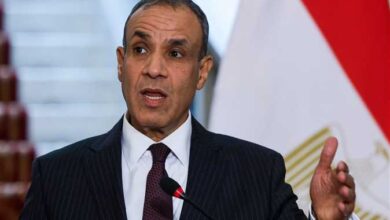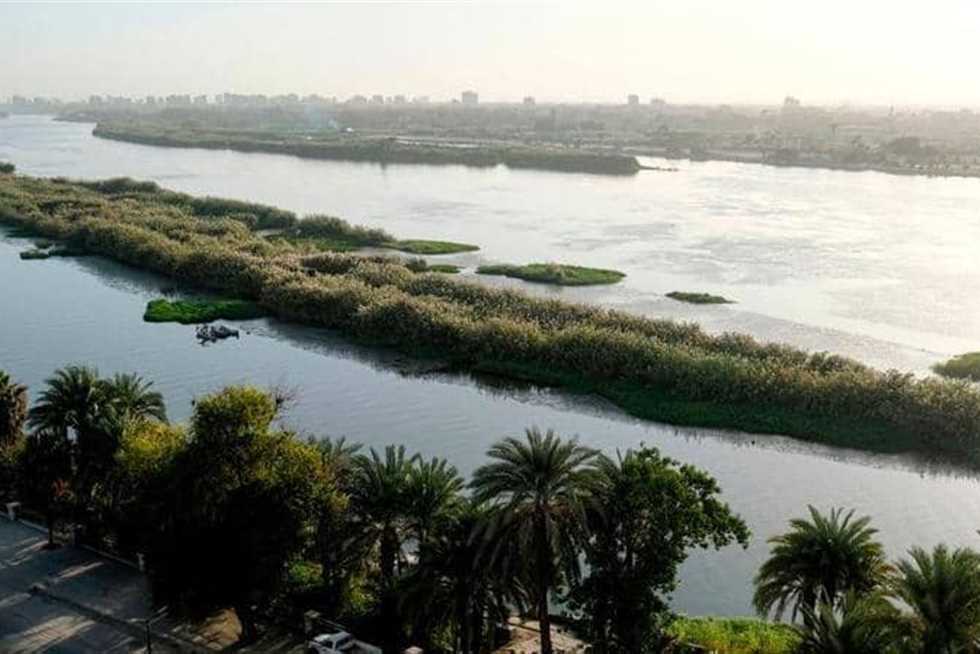
Egypt is a massive living organism — a web of ticking clocks, each set to a slightly different millisecond. With approximately 80 million in the country, 18 million of whom are woven into the streets and buildings of Cairo, the traffic of the city may crawl but many would say it is only by the will of God that it continues to flow at all. People are everywhere — driving, jumping off buses, walking, bicycling … ticking minute by minute through the days and nights of the city. Doctors, valets, belly dancers and beggars … Cairo keeps 18 million cogs in one of the world’s busiest wheels. This series takes a magnifying glass to one person, a representative of a job that keeps the city ticking — an eye-level shot that takes you through a day in the life of a cog in the wheel of Cairo. —Nevine El Shabrawy
“God doesn’t take a holiday,” says Hassan Mandour, shading his eyes from the sun’s reflection off the rippling Nile water. “He will give you blessings every day. You just learn to be content with what little you receive.”
The 62-year-old has been working as a felucca sailor in Cairo for the past 12 years. He rarely sets foot on land outside of the felucca dock on the Nile Corniche in Garden City. He doesn’t walk the streets of Cairo; his days and nights are spent by the flowing Nile River.
He hasn’t seen his wife and five children for two weeks now. They live in Rashid in Beheira Governorate, while he sleeps curled up on a bench in a boat. When business is slow, as it is these days, he’ll go back for a few days to visit his family. His oldest three are married with children, while the youngest is still in school and another is working as a cook on a boat in Sharm el-Sheikh. Sleeping in a bed in a closed space is a luxury to him, and the feeling of stable, elevated land beneath his feet a bit foreign; Hassan is used to the river breeze at night and the glittering lights of the hotel towers along the banks.
“I have spent my whole life on boats,” he says. “The water is all I know. I’m an old man who lives on a daily income. If I don’t make money, what else can I work in? Sailing is all I have.”
Hassan previously worked at the Marina hotel resort on the North Coast. He says the cutthroat life there was not for him — after working long, difficult hours, the last thing he wanted to fight about was his well-earned cut.
“There, I was under the control of the boat’s owner. If the guests bypassed me to pay him directly, then I’d lose the money that my wife and kids depend on daily,” he said.
Working by the Nile is good for him. There is a small network of sailors on either side of the river; they all look out for each other and help out when needed, he says.
“If, for any reason, I have trouble in the river, all I need to do is call them and they’ll come to help,” he says. “In Marina, you’re on your own to fend and fight for yourself.”
Seemingly much younger than his 62 years, Hassan moves deftly across the wooden planks to pull the sails back, then sits back on the cushioned seat with one hand steering the boat, the other grasping a cup of black tea that he had initially offered to me.
His hazel-brown eyes glint as he tells me what he thinks I want to hear: that tourism is booming and has improved since the revolution last year, and that everyone is content and grateful, al-hamdulillah. He is acutely aware of his situation — an older man living on a boat dock away from his family, surviving on an income determined by the whims of romantically inclined Egyptians or foreign tourists.
Over and over again, he repeats that he is content, his wife is content, and if everyone were pleased with what they had, however little that may be, there would be no trouble in the world.
“I could live a million years over but still I will die,” he says. “And I could have a nice car or a million pounds, but then what? What matters is that I live and die with a clear conscience, and that’s what I have. No amount of buildings and flashy cars will give me that.”
He wears a striped blue cap back to front on his head, shading the back of his neck from the brutal midday sun and hiding the graying hairs. A loose blue shirt is buttoned over his white vest and his bare feet are idly curled up on the seat. He doesn’t pause to reflect on the direction of the wind and sails; the course is managed swiftly, instinctively. This is what he knows best.
Every morning, Hassan wakes up on the boat he’s chosen to curl up on. Of the 15 men working the docks, eight sleep by the docks, while the others go to their homes in Boulaq al-Dakroor or Manial.
Between the early hours of morning and noon, Hassan checks his boat, fixes whatever is needed and sweeps and washes the floorboards before making himself a small meal. A shaded corner of the docks has a sink and a gas cooker, where he boils his tea and prepares an early lunch of fuul sandwiches.
Business rarely picks up before 4 pm, so he dozes off for an hour with his feet crossed up on the couch, facing the river. Once the sun begins to set and the weather cools, the tourists come flocking, and some evenings will keep Hassan out on the river until 1 am. Occasionally, he’ll have tourists eager to see the sunrise over the Nile just after dawn prayer.
May is supposed to be a busy month, filled with Arab tourists who spend hours on felucca rides, or even days sailing back and forth on the Nile.
“When the tourist is a son of the country, I feel empathy for him in our current crisis, so I’ll give him a cheap deal,” he says. “But Arab tourists are more generous with their time and money; they’re the ones that fill up the hotels and keep the business coming. Look at the corniche,” he says, pointing at the river banks and the Four Seasons, Kempinski and other hotels. “These hotels used to be fully occupied by tourists. Now they’re barely at 20 percent capacity. Thirty percent of Egyptians live on tourism; if there’s no business, we lose our livelihood, especially those of us living on daily incomes.”
He pauses to pull the sails back. The boat has come to a halt near the Sofitel Gezira as the wind pushes our sails in the opposite direction. He steers the rudder, maneuvering us against the current and says: “Egypt always has strangers’ feet on its lands: the Arabs come until the end of summer, and then the foreigners come; it used to be a constant flow. Now we’re the only ones on the river.”
Behind us, a fisherman throws his net into the muddy waters and stares in our direction with a cigarette pursed between his lips.
“We’re safe on the water here, we always have been. Even with the revolution and all the trouble, none of our boats were ever attacked and none of us were hurt. None of us went onto the land. With your feet on the boat, you’re safe from the trouble of the land. That’s why I’m never inclined to walk through Cairo. I’d rather go straight home to Rashid.”
Sailing against the wind, it takes us longer to return back to land as Hassan zigzags across the river. He leans in conversationally and talks about his wife, calling her “al-sitt,” the lady, not by her name or as the mother of his children.
“Do you know that in all our years together, I have never taken al-sitt away for a holiday? Never to the North Coast or to Ain Sokhna, and yet she’s perfectly content. She’s been my wife for 40 years yet she’s never asked for more than what I can give her. We make do with what we have. I struggle for the family, and she’s raised our children well. To her, it’s enough for me to come home from Cairo and spend time with her. That’s our holiday.”
He smiles.



